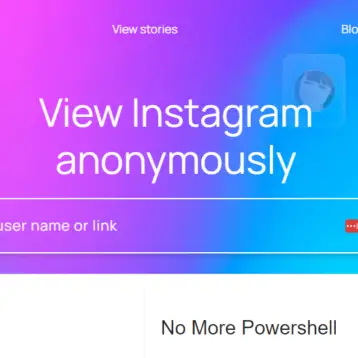In today’s business sphere, research is a critical ingredient for success regardless of size. Small and medium enterprises or transnational corporations rely on the insights generated from their research efforts. As a result, companies treat data as an essential resource and invest appropriately to obtain it.
Public data from competitor websites, government sources, and academic research are examples of secondary data companies consider helpful. Such data can inform business strategy significantly. But web scraping is central to efficient public data-gathering efforts. Read on to learn why market research is essential, how residential proxies help companies gather public data for research, and why companies buy residential proxies as a priority.
What Is Market Research?
Market research is the process of gathering, collating, analyzing, interpreting, presenting, and reporting data on the conditions within a particular industry or regional market. Insights generated from the research exercise serve as a guide for business decisions. Aspects of market dynamics that market research might inform businesses include:
- Consumer preferences
- Competitor strengths and weaknesses
- Cultural inclinations of a population
- Industry trends
In-depth market research usually employs two broad types of data: primary and secondary. Publicly available data gathered by web scrapers are examples of secondary data.
How Does Web Scraping Help With Market Research
Web scraping is a process that allows visitors of a website to automatically identify, collect, and sort data for analysis. All of its functionality is based on its algorithm and the nature of the configuration settings provided by the user of the scraping tool. That said, web scrapers could benefit market research efforts in the following ways:
- Facilitating efficient Data Collection: Imagine trying to collect online data on rival products in a particular industry and having to copy and paste items onto a spreadsheet manually. That could turn out to be a very stressful exercise, especially for businesses that deal in a wide variety of products spanning multiple industries. Web scrapers help companies collect such data without expending nearly the same amount of manual effort.
- Providing Real-time Insights: With web scraping, companies can access real-time info such as price changes, sales data, etc. Such an advantage could help companies react faster in dynamic markets, which is especially important in fiercely competitive product categories.
- Tracking Competitor Websites: Competitor websites are a treasure trove of insights into what’s working for rivals. Businesses can scrape product features, images, prices, reviews, etc., and inform themselves accordingly about rival brands.
- Facilitating Consumer Behavior Analysis: At the core of any successful marketing campaign is the ability to understand the needs and wants of customers or their behavior. Insights on the thinking behind consumer behavior are available in social media comments, product review sections, and online discussions. Web scrapers can help gather such data, thus helping companies tailor their marketing campaigns more effectively.
- Informing Businesses on Market Trends: Web scraping tools can sort through trends and news on prominent business sites and Google trends to help companies spot potential market disruptions. These businesses could, in turn, leverage or avoid such disruptions.
Challenges to Gathering Public Data

The benefits of web scraping aside, using them to collect data online is not always a smooth ride, which is why many companies buy residential proxy services. Some of the challenges businesses encounter when gathering public data include:
- Anti-Scraping Measures: Indiscriminate scraping could negatively impact website performance, thus worsening the experience of other website users. As such, websites utilize a variety of anti-scraping measures to prevent such bots from running wild. Such measures include captcha challenges, honeypots, etc.
- Rate Limiting: An alternative solution to the problems created for websites by scrapers, rate limiting involves websites intentionally slowing down the speed of requests from users making a lot of them.
- IP Bans: IP bans are the ultimate punishment for indiscriminate scraping. Websites reward users making many requests from a single IP address with an IP ban, thus preventing their access altogether. Such users can still buy residential proxy services to access the same website from another IP address.
Why Are Residential Proxies Crucial for Web Scraping Operations?
The following reasons are why businesses opt to buy residential proxy over other alternatives:
- Authentic anonymity: Any web proxy can confer anonymity, but none is as authentic as those of residential proxies. When businesses buy residential proxy packages and use them to access competitor sites, they appear as though they are authentic users from actual residential locations.
- Avoiding blocked IPs: Users that have heavy scraping operations can utilize multiple residential proxies, rotating between them to continue their data collection without drawing negative attention.
- Accessing geo-restricted data: The nature of residential proxies allows them to facilitate access to geo-restricted data. As such, their users can scrape regionally accessible websites and gain localized insights in the process.
Conclusion
Using web scrapers and residential proxies in data collection opens up businesses to even more localized insights. As such, they can gain even more of a competitive edge. If businesses that buy residential proxies are benefitting so much, there is no reason why you should restrict yourself. Buy a residential proxy and enhance the efficiency of your data-gathering efforts.






![How to Sign Up For Spam Calls [Step by Step Guide]](https://thefutureofthings.com/wp-content/uploads/2024/06/pexels-keira-burton-6147107-scaled-358x358.jpg)
